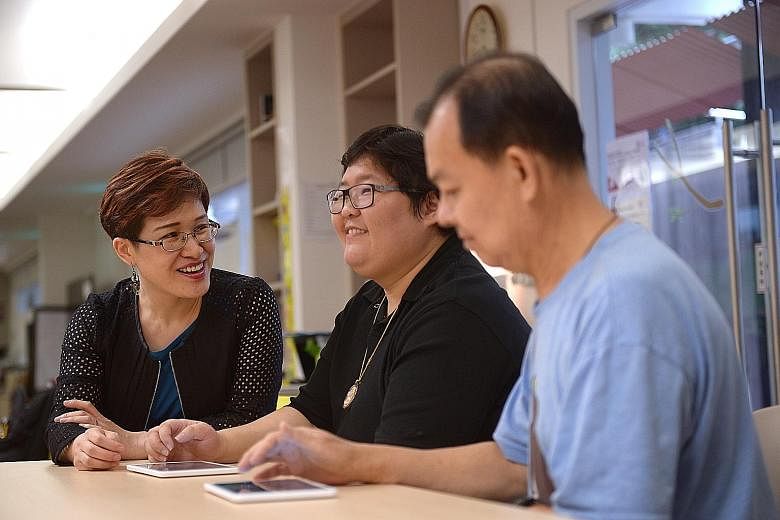People who suffer a stroke may end up with physical problems like difficulty in moving one side of their body, but what is less heeded are memory and thinking issues.
To plug this gap, a brain health and memory training programme is being rolled out today by charity organisation Stroke Support Station (S3). It will be the first such programme in Singapore that is launched in the community.
Said S3 chairman Chew Poh Yim: "We do not want to duplicate the services (that are already available). It must meet the unmet needs of stroke survivors and their caregivers."
So far, about 20 stroke survivors have been put on the brain health programme at the Enabling Village in Lengkok Bahru.
It is conducted by Dr Catherine Dong, a visiting neuropsychologist at the National University Hospital Memory Clinic, who also designed the programme.
Participants also attend health education classes with caregivers to learn about post-stroke cognitive changes and advance care planning options. If needed, they will go through once-a-week sessions to train their brain to optimise stroke recovery or even to return to work.
They will be taught various strategies to help improve their memory, reduce their stress or cope with post-stroke fatigue.
Each three-hour session costs $30, but those with the Community Health Assist Scheme card pay just $6 for each session.
Stroke is the top cause of long-term disability in Singapore.
It is helpful to have a community-based programme as some survivors' mental-related problems surface after they are discharged from hospital, said Dr Dong.
About 50 per cent of patients develop memory and thinking problems within the first year of their stroke, she noted.
However, stroke rehabilitation programmes that are available here tend to focus on the physical and functional needs of patients, rather than cognitive function, she said.
"Cognitive impairment may be neglected because the motor impairment is a lot more obvious," said Associate Professor Deidre Ann De Silva, a senior consultant for neurology at the National Neuroscience Institute.
S3, which was started in 2015 to help ease stroke survivors back to normal life, will also introduce the brain health programme at Heartbeat@Bedok early next year.


